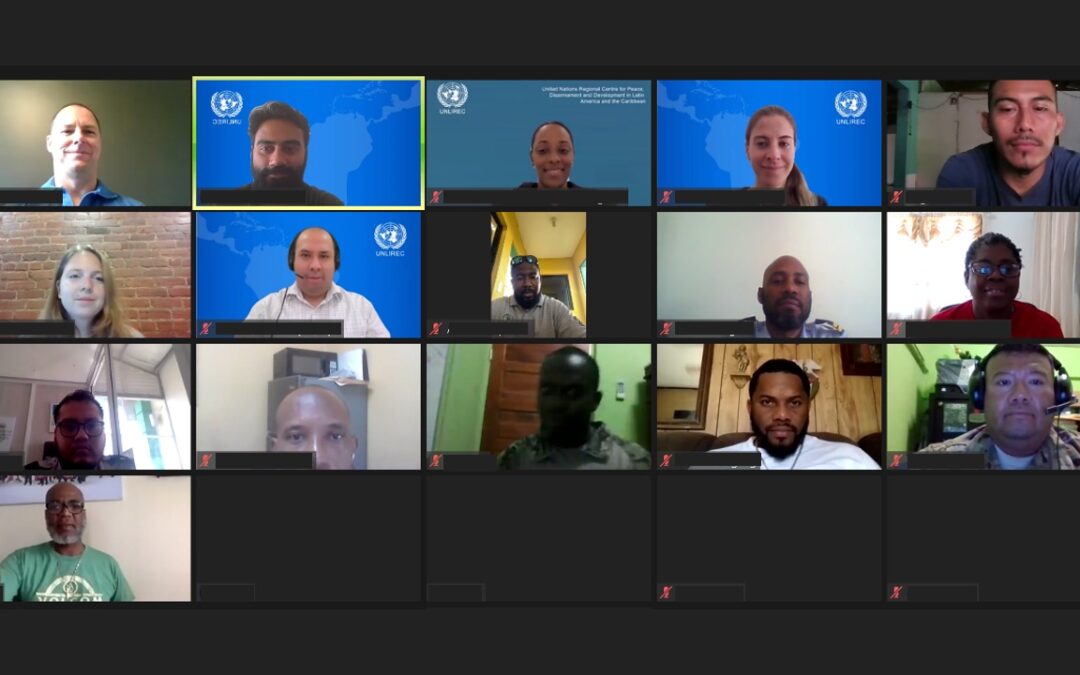From 19 April to 6 May 2022, the United Nations Regional Centre for Peace, Disarmament and Development in Latin America and the Caribbean (UNLIREC) delivered its Interdicting Small Arms, Ammunition, Parts and Components (ISAAPC) course in virtual format in Belize. Sixteen (16) officials, including one woman, from Customs and Excise Department and Belize Police Department actively participated in the virtual course. This course was delivered to officials in Belize for the first time.
The ISAAPC course forms part of the technical assistance provided by UNLIREC within its ‘Support in the Implementation of the project. The specialized course aims to strengthen the capacities of States to combat and prevent the illicit trafficking of small arms, ammunition and explosives that is carried out through postal shipments, packages, parcels and luggage at entry, exit, and transit points in the country.
Based on a mix of theory and practical elements, participants were trained on the fundamental aspects of X-ray technology, technical specifications of small arms, their parts and components, ammunition, explosives, and less lethal weapons. The course also included an interactive session on concealment methods being employed by traffickers in the region. Furthermore, participants received practical training on an X-ray simulation programme developed by the Centre for Adaptive Security Research and Applications (CASRA), thereby enhancing and developing their capacities to detect illicit trafficking through X-ray scanners.
This specialized course, developed in line with 2001 UN Programme of Action on Small Arms, the Arms Trade Treaty and the 2030 Agenda for Sustainable Development, in particular target 16.4, contributes towards regional efforts to prevent illicit trafficking of firearms and ammunition, thereby reducing firearms-related crimes and armed violence in the Caribbean. This course also contributes to Goal 2 of the Caribbean Firearms Roadmap, entitled ‘Reduce the illicit flow of firearms and ammunition into, within and beyond the region’.
The implementation of the ISAAPC course was made possible with the financial support from the Government of Canada.

